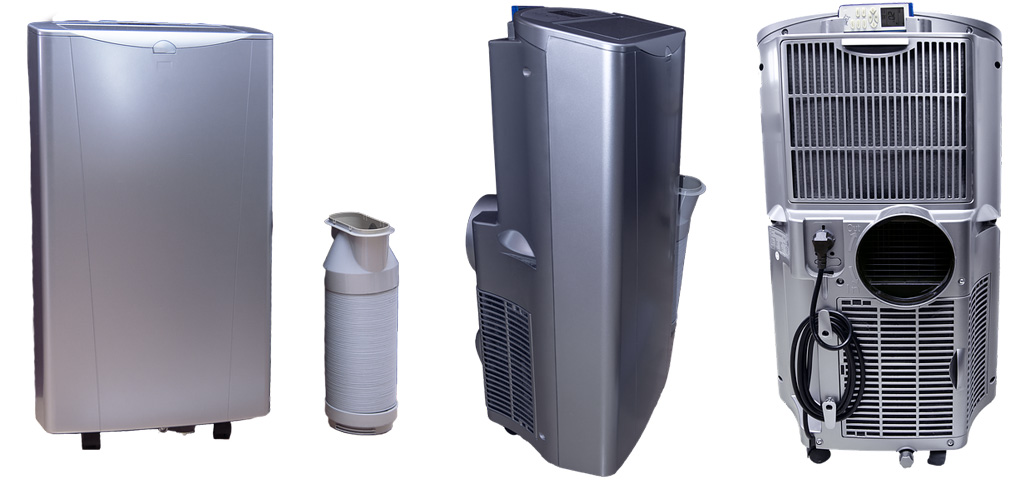Portable air-conditioning units have become very popular in less frequented spaces like offices and second homes because they are presented as cheaper options that do not require installation work. But what are the real pros and cons of a portable air conditioner?
At AJ’s Air, we want our clients to know how to make the best decisions. That is why, if you are thinking about acquiring a portable AC unit, we help you analyze your possibilities.
Pros:
- A portable room air conditioner can be moved and located in almost any space because it is portable and easy to install.
- With this type of mini air conditioners, you can cool small areas without spending the big energy amount required by a central air conditioner system.
- It is also useful for rooms that generate more heat, such as kitchens or an office with electric devices like photocopiers, computers, etc.
- Most compact air conditioner models have a ventilation system to eliminate hot air.
Cons:
- Its high consumption ranges between 1,000 and 2,000 kW / hour.
- Sometimes its size in a small room could be problematic.
- They make some noise —although there are brands that are improving this aspect.
- The current minimum requirements for the energy used in air conditioners is 10 EER (Energy Efficiency Ratio). While some air conditioners reach or exceed this number —those that usually cost more—, many do not.
The portable air conditioner is presented as a great choice for spaces that do not exceed 40m2, or that do not need constant cooling. They are ideal for a second home or as support for an air conditioning installation that does not cover the whole area.
Do you think a portable AC is a right fit for you? If so, we recommend that you make good use of it to save money and energy with these five tips:
- The rooms must be closed and well insulated.
- In summer, set it to 23 ° or 24 °. It is an ideal temperature with low energy consumption.
- Use the “sleep” function to decrease its working hours during the night (which is when the body requires less amount of cold).
- Clean filters frequently to prolong its lifespan and prevent sicknesses like colds or pharyngitis.
- Ask a specialized technician to perform a full check at the beginning of each summer, including:
- The refrigerant gas charge measurement (this will avoid problems such as the freezing of the external coil).
- The air filter needs to be clean.
- The water drainage control.
- The motor consumption control.
As often happens with any domestic appliance, good maintenance can save us many problems, breakdowns, and an unnecessary cost.


